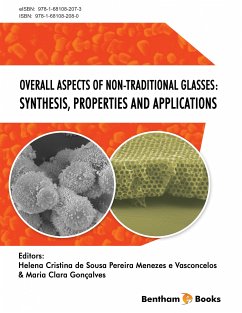The structural properties of glass (non-crystalline structure with short-range order, continuous molecular network with no intergranular boundaries, isotropy, easy transition into a plastic state within a wide temperature range) allow a freedom of design that few materials offer. The addition of different materials to glass during the manufacturing process also confers different physical properties to the final product. There has been a proliferation of several types of glass over the last century with a wide array of applications such as in household ceramics, medicine, telecommunications, optical instruments and much more.
This monograph guides readers through the science of glass. It starts by giving a general summary of glass properties and progresses to explain different glass types that have had a wide scientific and commercial impact in our lives. The glass types covered in this text include bioglass, fluoride glass, glass ceramics, photonic glass, solar glass and chalcogenide glass.
This book serves as a textbook for ceramic and glass engineering courses and a concise reference on glass science for new researchers in the field of materials science.
This monograph guides readers through the science of glass. It starts by giving a general summary of glass properties and progresses to explain different glass types that have had a wide scientific and commercial impact in our lives. The glass types covered in this text include bioglass, fluoride glass, glass ceramics, photonic glass, solar glass and chalcogenide glass.
This book serves as a textbook for ceramic and glass engineering courses and a concise reference on glass science for new researchers in the field of materials science.








